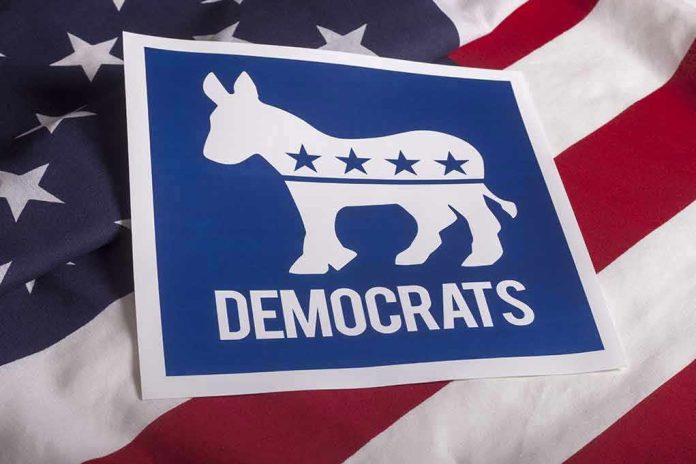
The legal battle over SNAP benefits could leave millions of Americans without food aid as a government shutdown looms.
Story Snapshot
- A coalition of 25 Democratic-led states and Washington, DC, have filed a lawsuit against the Trump administration.
- The states aim to prevent the suspension of SNAP benefits for approximately 42 million Americans.
- The USDA claims it cannot use contingency funds to continue payments beyond November 1, 2025.
- Democrats argue the administration unlawfully withholds $6 billion in emergency funds.
The Lawsuit and Its Implications
On October 28, 2025, 25 Democratic-led states and Washington, DC, filed a lawsuit in the U.S. District Court of Massachusetts against the Trump administration. The legal action seeks to block the suspension of Supplemental Nutrition Assistance Program (SNAP) benefits, which the administration announced would be halted starting November 1 due to a government shutdown. The states argue that the USDA has unlawfully withheld $6 billion in emergency funds meant for such crises.
The USDA maintains that it lacks the legal authority to use contingency funds for regular benefits without appropriations. This claim has been contested by the states, who believe the funds are intended to bridge short-term gaps during shutdowns. The lawsuit emphasizes the potential humanitarian crisis, as SNAP benefits support approximately 42 million Americans, including children, elderly, and disabled individuals.
Historical Context and Precedents
SNAP, formerly known as food stamps, is a federal entitlement program providing monthly food assistance to low-income Americans. Funded through annual congressional appropriations, it has historically relied on contingency funds during prolonged government shutdowns. In 2025, Congress failed to pass a budget, leading to the lapse of SNAP appropriations on October 1. Although the USDA initially suggested that contingency funds could maintain benefits, it later reversed its position, stating the funds were unavailable without an active appropriation.
During previous shutdowns, such as the 2018-2019 event, contingency funds were temporarily used to continue SNAP benefits. These instances were not without controversy over legal interpretations and administrative discretion. The current situation highlights ongoing partisan conflicts over funding priorities and the critical role of SNAP in preventing hunger and stimulating local economies.
Current Developments and Political Dynamics
As of October 28, 2025, the lawsuit is pending in federal court, with no resolution reached in Congress. The shutdown continues, and the risk of SNAP benefit suspension remains imminent. Democratic leaders have held press conferences to emphasize the stakes and legal arguments, while the USDA’s public messaging has shifted to blame Senate Democrats for the benefit suspension.
North Carolina Attorney General Jeff Jackson highlighted that Congress provided a $6 billion emergency fund for situations like this, challenging the USDA’s stance. The administration, however, argues that only Congress can resolve the funding lapse. This standoff reflects broader shutdown negotiations and partisan standoffs over unrelated policy demands.
Impact and Broader Implications
The immediate loss of food assistance could affect up to 42 million Americans, increasing demand on food banks and local charities. The political pressure on Congress and the administration to resolve the shutdown is mounting. Long-term implications include erosion of public trust in federal safety net programs and potential legal precedents regarding the use of contingency funds during shutdowns.
Economically, the loss of billions in federal aid could depress local economies, particularly in rural and low-income areas. Socially, increased food insecurity and associated health problems pose significant risks. Politically, the situation may intensify partisan conflict and further government dysfunction, affecting food supply chains, retailers, and nonprofits overwhelmed by increased demand.



